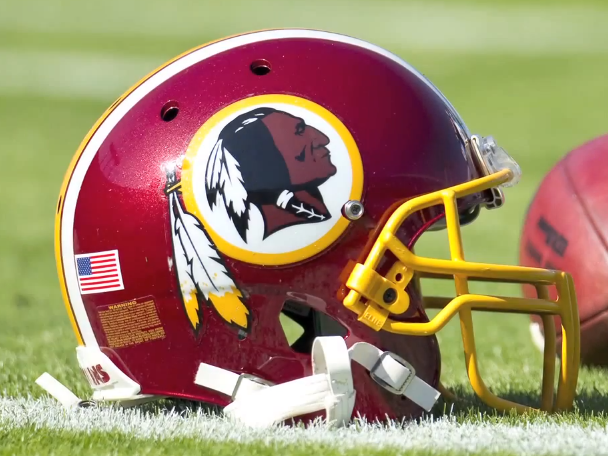Redskins Trademark Cancellation Validates ‘Change The Mascot’ Viral Video
Aggressive ad blitz aimed to educate sports fans about a racial slur.

Last year a group of high school students in Upstate New York got together and did something that Dan Snyder, the billionaire owner of the Washington Redskins, seems completely incapable of doing: They changed the name of their school’s sports team.
The sports teams that represented the small Cooperstown school used to be called the “Cooperstown Redskins,” but following a student-led initiative in May 2013, the teams were renamed the “Hawkeyes.” Life went on. In fact, the Oneida Indian Nation, a nearby Native American tribe, was so moved by the gesture that it donated $10,000 to the school district to pay for the teams’ new jerseys. “This wasn’t something that anyone asked them to do,” said Joel Barkin, an Oneida spokesman. “Student leaders there just decided that the name was inappropriate. The kids, on their own initiative, voted to switch their name because they thought it was offensive.”
Barkin spoke with International Business Times on Wednesday just a few hours after reports that the U.S. Patent Office has canceled six federal trademarks related to the Washington Redskins team name. The patent board called the name “disparaging to Native Americans,” and therefore unsuitable for trademark protection under federal guidelines. The ruling follows a lawsuit filed by Amanda Blackhorse, a Navajo psychiatrist, and four other Native Americans. It also comes on the heels of an aggressive advertising campaign called “Change the Mascot,” launched in September 2013 by the Oneida Nation following the incident in Cooperstown.
Barkin said the students’ willingness to take matters into their own hands convinced Oneida leaders that the time was ripe for change in professional football. “We decided that we were in a unique moment in our nation’s history, where this issue had the opportunity to really take on a different level of awareness,” he said.
The campaign’s centerpiece, a video called “Proud to Be,” aired earlier this month during the NBA playoffs. The ad features a touching montage of images as a narrator lists the various names Native Americans call themselves -- “proud,” “patriot,” “resilient,” etc.” -- and “the one thing they don’t.” It ends with on a still shot of a lone Redskins helmet on a football field. The ad has been viewed more than 3 million times on YouTube.
Barkin said the campaign was paid for with Oneida resources at a “significant” cost, but declined to say how much. He said the campaign doesn’t deserve credit for Wednesday’s ruling by the patent office, but he believes it helped raise awareness of the issue and hopes it helped educate the public as to why the Redskins name is considered so offensive. “It’s completely inappropriate for a $9 billion industry to be marketing and profiting from what is a dictionary -- and now a government-defined -- slur,” he said.
In a statement, Bob Raskopf, trademark attorney for the Washington Redskins, vowed to appeal the ruling and said it will have “no effect at all on the team’s ownership of and right to use the Redskins name and logo.” The trademarks are still in effect as the ruling is under appeal.
Barkin said the pro-football team could learn a lot from that group of high schoolers in Cooperstown. “This is not something that has to be ultimately litigated and decided by the courts,” he said. “What’s telling is that rather than defend their position through a moral or ethical argument, they’re defending it through a procedural argument.”
Watch the “Proud to Be” video below.
© Copyright IBTimes 2025. All rights reserved.






















